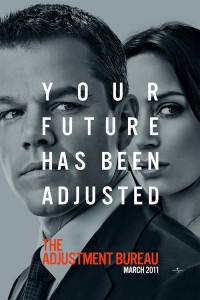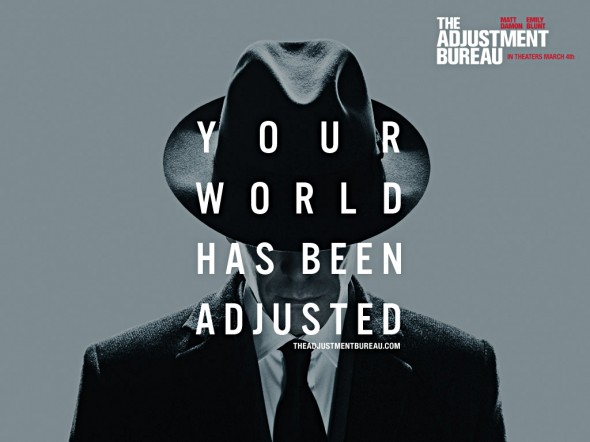Top 10 List for 2011
Posted on December 28, 2011 at 6:02 pm
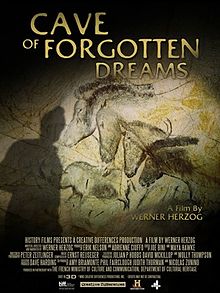 There were more sequels and remakes released in 2011 than ever before, but that wasn’t the only reason for feeling a sense of deja vu over the past 12 months. This year we had two films with almost identical plots about a couple who decide to to have a relationship that is just sex, no emotion. Spoiler alert: in both “Friends with Benefits” and “No Strings Attached” they end up falling in love. We had two films about sad little boys who lost their fathers trying to solve a mystery involving a key. Both were based on acclaimed novels and both were excellent: “Extremely Loud and Incredibly Close” and “Hugo.” We had two films about the parents of teenage boys who shot and killed students in their high schools. I preferred “Beautiful Boy” with Michael Sheen and Maria Bello but most of the critics liked “We Need to Talk About Kevin” with John C. Reilly and Tilda Swinton. And we had six films featuring superb and very different performances from an actress who was unknown in 2010, Jessica Chastain. Michael Fassbender, who made an impression as a British officer in Inglourious Basterds
There were more sequels and remakes released in 2011 than ever before, but that wasn’t the only reason for feeling a sense of deja vu over the past 12 months. This year we had two films with almost identical plots about a couple who decide to to have a relationship that is just sex, no emotion. Spoiler alert: in both “Friends with Benefits” and “No Strings Attached” they end up falling in love. We had two films about sad little boys who lost their fathers trying to solve a mystery involving a key. Both were based on acclaimed novels and both were excellent: “Extremely Loud and Incredibly Close” and “Hugo.” We had two films about the parents of teenage boys who shot and killed students in their high schools. I preferred “Beautiful Boy” with Michael Sheen and Maria Bello but most of the critics liked “We Need to Talk About Kevin” with John C. Reilly and Tilda Swinton. And we had six films featuring superb and very different performances from an actress who was unknown in 2010, Jessica Chastain. Michael Fassbender, who made an impression as a British officer in Inglourious Basterds, had a stunning array of roles this year in “Jane Eyre,” “X-Men: First Class,” “Shame,” and “A Dangerous Method.”
But, as there are every year, there are movies so fresh and surprising that they seem to re-invent the very idea of movies. I begin each year looking forward to what’s ahead but most of all looking forward to knowing that 365 days later there will be people and images and dialog and ideas so vital and engaging I can hardly remember what it was like before I knew them. I would not have expected Woody Allen’s new movie to be surprisingly good or Pixar’s and Michel Gondry’s would be disappointing. It was good to know that Alexander Payne and Martin Scorsese can still be relied on. I had high hopes that were met or exceeded for films like “Harry Potter and the Deathly Hallows: Part 2” and “Mission: Impossible Ghost Protocol.” For the first time, four master film-makers worked in 3D. Steven Spielberg, Martin Scorsese, Werner Herzog, and Wim Wenders showed us that a gifted filmmaker can make 3D into more than a stunt — they used it as another way to enhance the story. And if you had told me that my top 10 list this year would be led by movie that was not only black and white but silent, I would have looked around for a time machine.
Here’s my tribute to the best of 2011, all close to being tied for first place. And I’m already looking forward to being surprised by the movies in 2012.
1. “The Artist” While Hollywood was abandoning a century of film to move to digital filmmaking, French writer/director Michel Hazanavicius took us back to another time of technological change. It recalled themes in classic films “Singin’ in the Rain” and “A Star is Born” with such affection, charm, and heart that it left us asking why we ever thought sound and color were anything but superfluous.
2. “Extremely Loud and Incredibly Close” A boy who loses his father in 9/11 looks for answers in this touching story based on the book by Jonathan Safran Foer. Viola Davis and Max von Sydow are heartbreaking as two of the people he meets on his search.
3. “Hugo” Another fatherless boy and other search involving a key — Martin Scorsese’s first 3D movie and first movie for families is an immersive, rapturous valentine to the movies.
4. “Beginners” Christopher Plummer plays a man who comes out at age 72 and Ewan McGregor plays his son in this wry, wise story based on writer/director Mike Mills’ own life.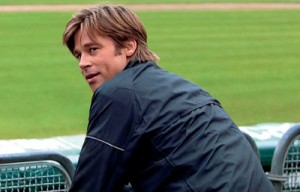
5. “Win Win” Tom McCarthy (“The Station Agent”) wrote and directed this story of a struggling lawyer who takes advantage of a client with dementia and ends up taking care of the client’s grandson, a gifted wrestler.
6. “Cave of Forgotten Dreams” The Chauvet cave has paintings of astonishing skill and beauty made by humans 30,000 years ago, but so fragile that the only way for us to see them now is in this 3D documentary from Werner Herzog.
7. “Super 8” Writer/director J.J. Abrams pays tribute to his mentor, producer Steven Spielberg, with the third film on my list that is a love letter to the movies. In the 1970’s, a group of middle schoolers make a zombie movie on Super 8 film and accidentally get footage of a mysterious train crash. While they wait for the film to be developed, they investigate.
8. “Margin Call” It all takes place on one tense night when an enormous Wall Street firm learns that it has massively underestimated its risk and then schemes to transfer that risk to their clients. An all-star cast led by Kevin Spacey and Jeremy Irons and a script by first-time director J.C. Chandor keeps this specific enough to be real and timely but the dynamics are universal.
9. “Moneyball” Brad Pitt is brilliant as Billy Beane, who turned around the Oakland A’s and transformed baseball by using the team’s scarce resources to buy wins, not players.
10. “The Adjustment Bureau”/”Source Code” We were lucky to have two smart and very romantic thrillers this year, with Matt Damon as a politician drawn to a dancer despite the best efforts of mysterious men in hats who “adjust” circumstances and Jake Gyllenhaal as a military officer sent back in time to catch a bomber. 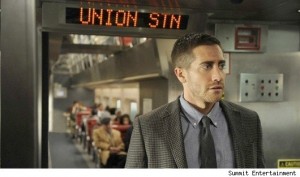
Runners-up: “Tree of Life,” “The Descendants,” “The Help,” “50/50,” “The Muppets,” “The Other F Word,” “Into the Abyss,” “Rango,” “Drive,” “Cedar Rapids,” “Hanna,” “We Bought a Zoo,” “Jane Eyre,” “Midnight in Paris,” “Bridesmaids,” “Another Earth”
Coming soon….the top 10 family films of the year and my Hall of Shame. Stay tuned.



